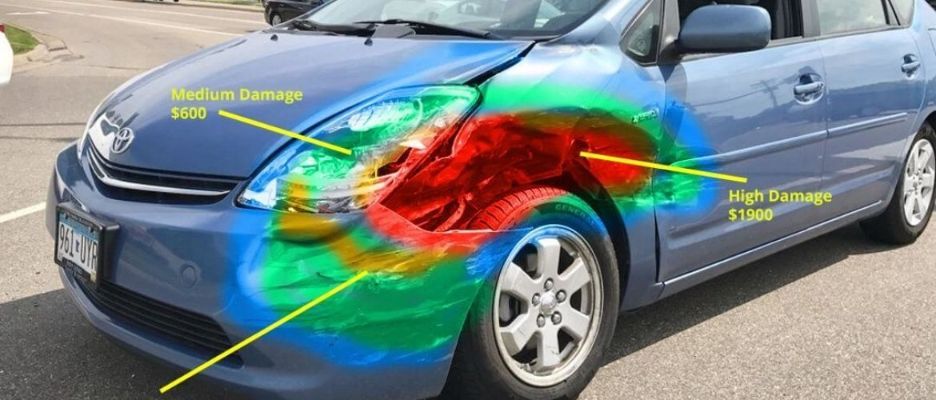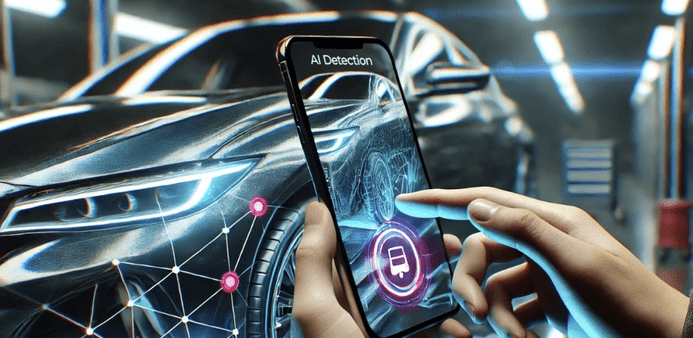Impact of COVID on Motor Insurance Claims | Inspektlabs
It appears that embracing technology is one of the sure-shot ways to future-proof your insurance business. Remote and touchless technologies are introducing convenience for customers and insurers alike.

The COVID-19 pandemic has impacted several industries across various sectors in many ways. While some are registering an unprecedented growth, others are teetering at the edge of shutting down. Given its macro- and micro-level impact, COVID has drastically changed how businesses operate, and the insurance industry is no exception.

Motor insurance accounts for over 35% of the total insurance premium collection. Thus, it was one of the most significant revenue sources in the general insurance industrial sector. So, what does the future hold for motor insurance? How is this sector set to change? Let’s take a look:
Ongoing Motor Insurance Challenges and Future Trends
The automobile industry was already witnessing a slowdown even before the pandemic struck. Resultantly, motor insurance also registered virtually zero growth. For starters, the purchase of new automobiles is responsible for a big chunk of insurance premiums. However, as these purchases trickled down and lockdowns were imposed, these collections came to an almost absolute halt.
Here are some other challenges faced by the motor insurance industry:
• Claim surveying came to a standstill as adjusters could no longer visit policyholders to conduct vehicle damage audits.
• Furthermore, there was an anticipated decrease in claims on existing policies since fewer vehicles were plying. Similarly, the claims under the own damage category also decreased.
• Motor insurance firms and spare part dealers faced an acute labor shortage, which brought down service quality. In a customer-centric service industry, such as insurance, businesses cannot afford this trust erosion.
• Since manufacturing activities came to a grinding halt, the availability of spare parts may continue to remain sporadic, which will again impact the service standards of insurance companies.
While the situation may currently look bleak, the future holds a beacon of hope. With social distancing norms in effect, consumers will lean towards purchasing private vehicles. Thus, insurers can expect a peak in the purchase of new and used cars and two-wheelers, which will leave room for third-party insurance policies.
Rise of Remote Technologies and Touchless Claim Settlement
Amongst the challenges cited above, a common recurring theme is a loss in service quality. Fortunately, technology has played a crucial role in salvaging customer experience and enhancing insurance service quality and accessibility.

In fact, it has given rise to insuretech, the tech-focused vertical of the insurance industry. Remote technologies are making it possible for insurers to sell and renew policies while offering speedy claims settlement.
Here are some of the key highlights and advantages of tech-driven insurance claim settlement:
• Use of NLP chatbots to handle basic customer queries, share updates on claims, and renew policies.
• Since remote technologies bypass physical visitation, it overcomes the challenges posed by lockdowns.
• Customers can use the self-servicing facilities and file FNOL and insurance claims with supporting images/videos of the damage.
• AI-powered damage assessment and line-by-line estimation helps in a quick and accurate settlement. Further, it makes reliable decisions on repairable vs. total loss options.
• It helps in the maintenance of robust and tamper-proof data-driven records.
• Disbursal of settlement is instantaneous and effortless.

Final Thoughts
It appears that embracing technology is one of the sure-shot ways to future-proof your insurance business. Remote and touchless technologies are introducing convenience for customers and insurers alike. As it unlocks potential in a range of core business operations, insurers can deliver above and beyond customer expectations. Thus, insurance companies can be assured of business continuity, improved customer retention, greater scalability and agility, and higher profitability despite any disruptions!



